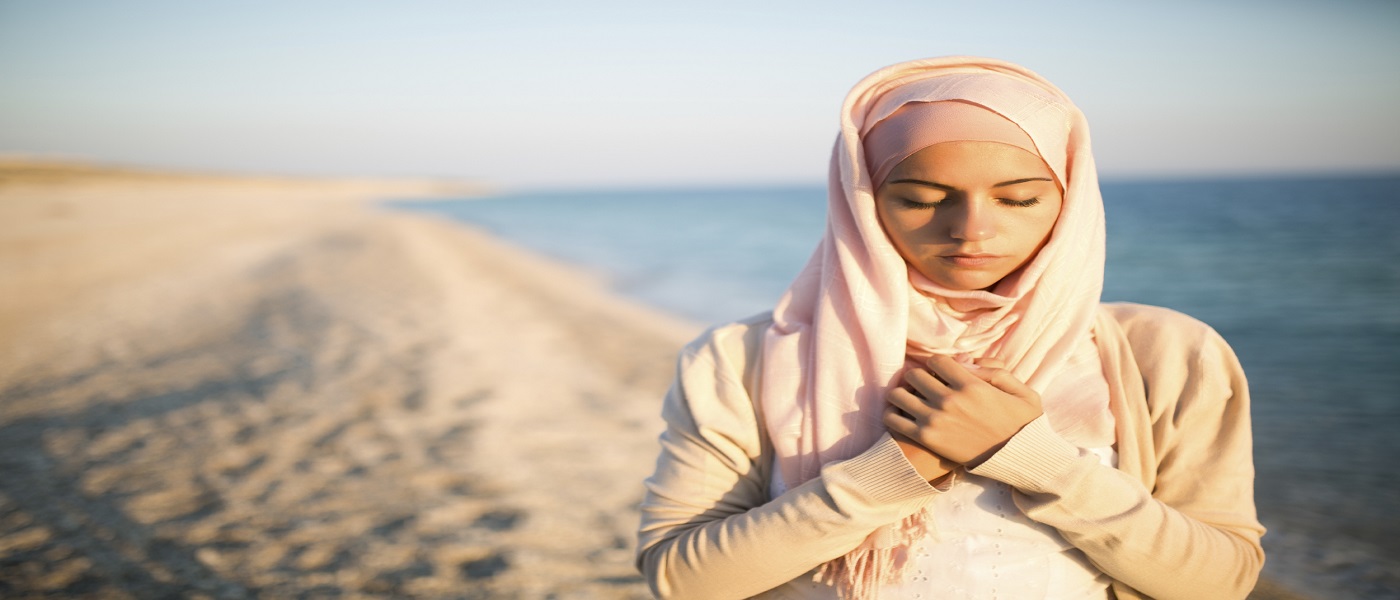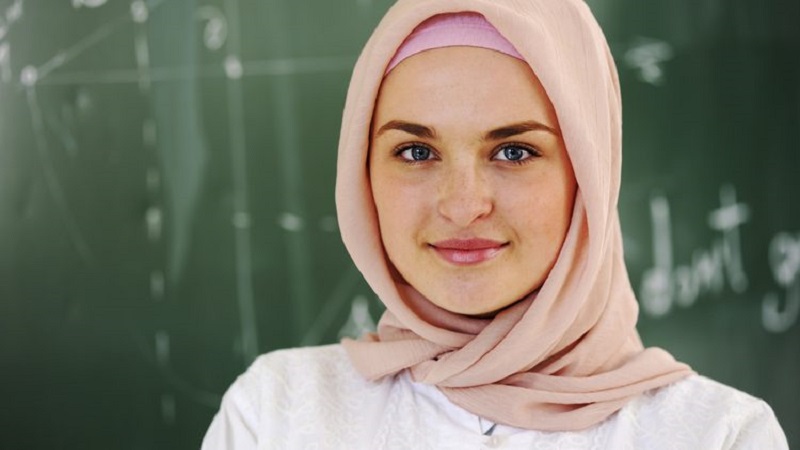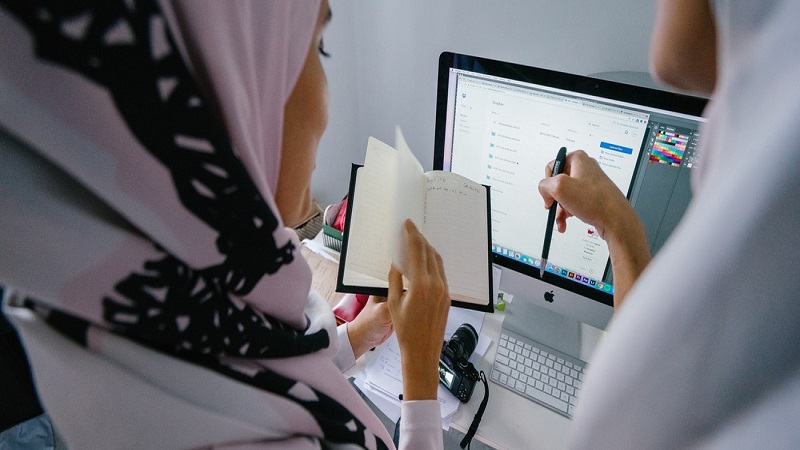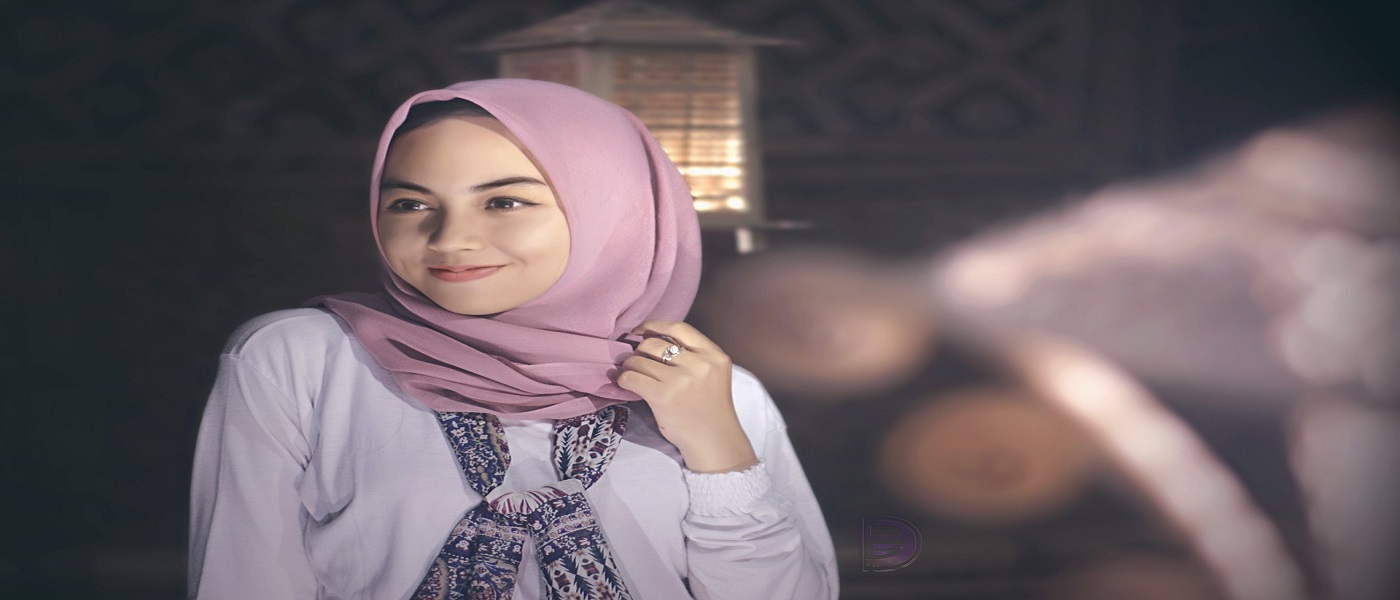

Women in Islam
As a New Muslim woman, I find the Islamic lifestyle fully responsive in every aspect of my life. Here, Salam Islam deals with different issues regarding women in Islam. Salam Islam is a platform to make those who convert to Islam, more familiar with the benefits that the Islamic life can offer them.
Islam pays specific attention to women’s rights in life. The important role of women in the family, in society and their huge influence in the world, has not been neglected in Islam, as well as their personal and spiritual life is strongly protected based on Islamic lifestyle.
Let’s quickly monitor what Salam Islam provides about women in Islam;

Personal life of Women in Islam
Muslim women’s life might sound boring for those who have not chosen the Islamic lifestyle. A new convert to Islam may find herself confused in different aspects of her life. Salam Islam explains that Muslim women, better than all other women, can enjoy their lives by having lawful fun.
The issue of the Islamic dress code or Muslim women’s Hijab is also discussed from different standpoints in Salam Islam. What does Hijab mean? Is there a history of Hijab in Abrahamic religions? Why at all should they wear Hijab and cover their hair? Is there a chance that one converts to Islam without wearing Hijab? Does the Islamic dress code change from time to time and place to place, based on the conditions of time and place?
Issues Concerning Women’s Marriage in Islam
Salam Islam also covers the important issue of women’s marriage. It tries to clarify women’s rights in the family, and their rights in choosing the right spouse. Since women’s dignity and respect is very important in Islam, therefore women are free to choose a spouse based on Islamic guidelines. It is explained why Islam will allow women to marry a non-Muslim man and live under his demand.

Women’s rights in Islam in society
The issues of women in Islam are sometimes wrongly described and understood in the west. Some western people based on their shallow understanding of Islam, undermine the high status of women in the whole system of Islamic life.
Salam Islam tries to answer most of the misconceptions regarding the aspect of women’s lives in society. Are women in Islam inferior to men? Can they have a career? Why should they cover themselves in society? What about feminism and women’s rights in society?
Prominent Women in Islam and the History
Is there any practical and tangible model for the life of women in Islam? To answer this question, Salam Islam studies the life of prominent women mentioned in the Holy Quran and the history. By studying their life stories and events, one will be inspired to follow the lifestyle of such great role models to have a successful life like them.
Role models such as Saint Mary, Hagar; the Wife of Prophet Abraham, Fatimah; Daughter of Prophet Muhammad (PBUHHP), and Zainab; the granddaughter of Prophet Muhammad (PBUHHP).
If you have any questions about Mulsim women’s issues, you are welcome to send us your questions.
Share This Article

Why do Muslim Women Cover Their Hair?
In recent years, the scarf or Hijab in Islam that Muslim women wear on their heads to cover the hair has engaged many governments and has been among the headlines around the world. Since then, Hijab and covering the hair has been banned in certain government buildings, schools, and public services in some countries.
So the question is: what is that strong incentive that makes Muslim women even more resolute to maintain their belief in Hijab, despite all these controversies and conflicts?
Islamic Dress Code
According to most of the Islamic jurists, Muslim women are required to wear the clothing that covers their hair and entire body except the face and the hands, from the wrist to the fingers, in the presence of non-Mahrams or small boys whose consciousness of sex has developed or the evidence of sexual urge is noticed on them [1]. So, in the circumstances where non-Mahrams are not likely to be present, there is no need for Muslim women to wear Hijab in Islam.
In Surah Nur, women are ordered to “not expose their adornment except that which [necessarily] appears” (24:31). In a narration from Imam Sadiq (AS) and some other Islamic narrations [2], the hair is known to be an adornment for a woman, then, it is obligatory (Wajib) to cover it. The very first reason to veil the hair is, therefore, the commitment to the ruling on Hijab in Islam.
However, it should be noted that there has always been a natural tendency in human beings, especially in women, which made them not expose their body. This originates from an inner sense of modesty and decency which is stronger in women. Hence, the Islamic dress code is in complete accordance with the human nature.
Wearing Hijab in Islam and Mental Relief
It is evident that the beauties of a woman’s appearance, hair and body have always been appealing to men, and even women; that is why they usually appear on the advertisements to attract more customers for companies. On the other hand, women tend naturally to show their beauties and to get admiration. Men might be therefore easily appealed by the appearance of non-Mahram women, and this can eventually lead to a forbidden (Haram) gaze [i].
Committing a first forbidden (Haram) gaze and then consecutive ones affect both who looks (man) and who is looked at (woman). The one, who looks, remains thoughtful for a while by what he has seen and this may even last for days and weeks and lead even to some lustful thoughts. Also, one who has received a forbidden (Haram) gaze won’t be at ease and might feel her privacy invaded. So, both sides will be under some sort of stress and anxiety.
Since the two sides are both affected by a forbidden (Haram) gaze, women and men are equally required to take part to avoid such looks. To this kind of gaze and its consequent mental pressures, Islam orders women to cover their hair, and more generally their body. This is, in fact, the strategy to remove the external causes of sinful looks which concern women.
For the men’s part, they should participate by controlling their eyes. Forbidden (Haram) gaze is such that brings about one after the other. So, men are commanded not to follow the first unintended look by the second one; in other words, they should put an inner barrier to such looks.
Wearing Hijab in Islam and Social Effects
Islam has encouraged women to appear in the society modestly and with dignity. This is, however, something inherent in every woman. The more simply a woman is dressed and is dignified, the more she will be respected by men and will be protected from the harmful gaze. The after effects of a forbidden (Haram) gaze are not limited to the unpleasant feeling that it brings about.
Women who do not wear Hijab, including the ones who do not cover their hair, are more susceptible to such annoying looks at any time and anywhere, and this consequently makes them feel more “unsecured” in the society. Even in some cases, this might end in some sorts of sexual abuse which is a crime in every society.
Moreover, the Hijab of a body is the basis for other types of Hijab that are commanded in Islam and which have the same aim in the society. It means to invite the humans to modesty and dignity in order to guarantee a normal and equilibrated society. These kinds of Hijab offer a reference on how one should look at non-Mahrams, the way of talking with them and the behavior in their presence [ii]:
Hijab of the eyes, recognized as controlling the glance, which mainly concerns men (as discussed above);
Hijab of talking when dealing with non-Mahrams, which concerns both women and men. It is about using a serious tone of voice, caring about the words exchanged, considering the human identity of the other person other than his/ her gender, and just focusing on the subject and the purpose of the discussion. Otherwise, the goal of the conversation, either scientific, formal, social or working, won’t be achieved;
Hijab of the behavior that implies being decent and modest towards the opposite gender, in a way that the person with the lust in the heart cannot dare to violate one’s privacy (especially women’s privacy).
Another social effect of Hijab manifests itself in the family, as the basic unit of the society. In Islamic teachings, great importance has been given to the family as an influential institution of the society. Forming a family (through marriage) is known to be so dear to God as no other establishment [3]. Muslims are advised to satisfy some natural needs such as emotional and sexual ones, as well as beauty seeking desire only and only within the framework of the family.
This allows a regulated enjoyment of the beauties a woman has, accompanied with the commitment, which respects the principles of women’s rights. Besides, disobeying the Islamic ruling on Hijab in the society and exposing men to the feminine beauties in the streets, which would be tempting for them, is undesirable from the Islamic point of view. This makes the foundation of the family vulnerable and equally affects the relationship between the spouses.
Wearing Hijab in Islam, Covering the Hair and Being Recognized as a Muslim
Unlike previous religions, Hijab does not present a monastic attitude in Islam. Hijab in Islam follows certain social and individual purposes and helps one to live a better life. The Quran invites Muslim women to wear Hijab in order to be recognized as Muslims in the society and prevent being abused (33:59).
This becomes however suspended in case of distress and constriction [4]. The majority of Muslim women choose to wear Hijab to obey God and to be recognized by their intellect and minds rather than their physical appearance. They often believe that Hijab liberates them from the need to conform to unrealistic stereotypes and images dictated by the media [5].
They do not consider Hijab in Islam as a symbol of oppression but as a sign of Islamic consciousness. That is why they view it as a right and not a burden.
Notes:
[i] See “The Islamic Etiquette of Looking” for more info.
[ii] See the article “Hijab: the Real Meaning” for more details.
References:
- A. Aroussi Howayzi, "Tafsir Noor al-Thaqalayn", vol. 3/589, T. 105.
- H. Al-Ameli, “Wassail Al-Shia”, vol. 20, p.59.
- M. B. Majlesi, “Bihar al-Anwar”, vol. 103, p. 222.
- R. Mugehi, “Family religious precepts”, p.38
- Hijab in Islam
Read More

What Are Different Aspects of Hijab in Islam?
The word "Hijab"—which literally means screening or, better said, protecting something from the view of others—refers, in the Islamic context, to a kind of attire or a piece of clothing that covers a woman's body and hair.
Different Aspects of Hijab in Islam
Hijab Elevated the Status of Women
Not long before the advent of Islam were women regarded as objects of men's lust; female children were buried alive. To be brief, women were subject to physical exploitation and degradation. Islam, however, elevated women's status in society and granted them equitable treatment.
This idea is underscored many times in the Quran: “And whoever does righteous deeds, whether male or female, should he be faithful such shall enter paradise and they will not be wronged] so much as [the speck on a date-stone” (4: 124); or, “Whoever commits a misdeed shall not be requited except with its like, but whoever acts righteously, whether male or female, should he be faithful such shall enter paradise, provided therein without any reckoning” (40: 40). There are copious other examples in this regard.
Hijab Includes Men as Well
The fact that Hijab (in Islam) is not exclusively for women is equally important and worthy of attention; men also should be heedful of their clothing and their behavior. As a matter of fact, the Holy Quran first speaks of the word 'Hijab' about men and then women: “[Prophet], Tell the faithful men to cast down their looks and to guard their private parts. That is more decent for them. Allah is indeed well aware of what they do. And tell the faithful women to cast down their looks and to guard their private parts, and not to display their charms, except for what is outward, and let them draw their scarfs over their bosoms, and not display their charms except to their husbands, or their fathers, or their husband's fathers, or their sons, or their husband's sons, or their brothers, or their brothers" sons, or their sisters" sons, or their women, or their slave girls, or male dependants lacking [sexual] desire, or children uninitiated to women's parts. And let them not thump their feet to make known their hidden ornaments. Rally to Allah in repentance, O faithful, so that you may be felicitous” (24: 30-31).
Hijab Secures the Marriage
One out of the many benefits of the Hijab is to preserve and secure the stability of marriage, but how? Dressing modestly reduces extramarital sexual tensions between men and women.
Hijab, in essence, obliterates the ill thoughts of sick minds. In social interactions also Hijab does urges men and women to focus on the personality of each other, to build their relationship upon respect, virtue, and decency. In this way, they protect and propagate chastity and morality in society.
There are many great examples of chaste and pious women in the history of Islam who have tremendously contributed to the advancement of Islam and humanity in general.
Hijab Makes You Stronger
As a key Islamic value, Hijab is consistent with human nature. Men and women are by nature in favor of maintaining their dignity and self-esteem, and Hijab paves this way; it gives them an inner strength and empowers them to tell the world their decency and virtue cannot be compromised. The result is inner peace.
Hijab and Society
Therefore, from the teachings of the Quran, we come to realize that Hijab is the best principle (or code of conduct, if you will) that guarantees a better condition for male-female interactions in society because it keeps rampant desires on a tight leash. On a larger scale, observation of the Hijab prevents the society from falling into corruption and degeneracy.
We also realized that Hijab is not merely limited to the physical covering of the head and body; in fact, the physical Hijab must be accompanied by the Hijab of the heart and the mind.
Amidst the hustle and bustle of everyday life—with its common pitfalls and concealed traps—Hijab is truly a liberation beyond measure; it frees us from the slavish imitation of pseudo-liberal fashions that appear by day and vanish by night. It is a shield that protects our honor and helps us focus more and more on our superior goals.
Read More

